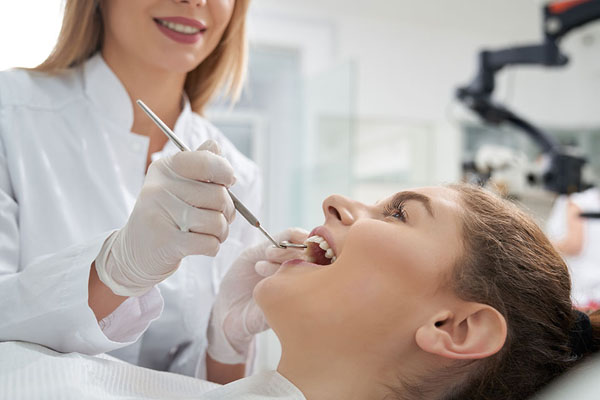How to Properly Prepare for Dental Bridges in Vero Beach, FL
Achieving successful outcomes with dental bridges requires proper preparation and understanding of the process. Dental bridges help in replacing missing teeth and restoring oral functionality. From initial consultations to post-procedure care, thorough preparation can ensure a positive experience and long-lasting results. By taking the time to educate yourself and make necessary arrangements, you can set the stage for a successful dental bridge procedure and enjoy the benefits of a healthy, restored smile.
Preparing for Dental Bridge Procedure

- Consultation: Schedule an appointment with your Vero Beach dentist to discuss your dental bridge treatment. During the consultation, Dr. Morgan will examine your teeth and gums, take X-rays or impressions if necessary, and determine the best course of action for your specific needs. Dr. Morgan will also evaluate your abutment teeth and their preparation for the dental bridge.
- Treatment Plan: Dr. Morgan will create a treatment plan tailored to your requirements. This plan will outline the number of visits required, the type of bridge to be used, and the expected duration of the treatment. The plan may include the potential need for dental crowns on adjacent teeth and the role of the dental laboratory in fabricating the bridge. Make sure you understand the treatment plan and ask any questions you may have.
- Oral Health Assessment: Dr. Morgan will assess the health of your teeth and gums. It’s important to have any existing dental issues, such as decay or gum disease, addressed before the dental bridge treatment. This ensures a stable foundation for the bridge and improves the long-term success of the treatment.
- Discussing Options: There are different types of dental bridges available, including traditional bridges, cantilever bridges, and implant-supported bridges. Your Vero Beach dentist will explain the pros and cons of each option and help you choose the most suitable one based on your oral health, budget, and personal preferences. Temporary bridge placement may be discussed to protect abutment teeth while the permanent bridge is being made.
- Pre-Appointment Instructions: Your Vero Beach dentist will provide you with specific instructions to follow before your dental bridge treatment. These instructions may include dietary restrictions, medication guidelines, and oral hygiene practices. It’s important to follow these instructions to ensure the best possible outcome.
The Day Before Your Appointment
The day before your dental bridge treatment, it’s important to take a few additional steps to ensure a smooth experience:
- Confirm Your Appointment: Call Vero Beach Dental Care to confirm the date and time of your appointment. This ensures that there are no last-minute changes or scheduling conflicts.
- Arrange Transportation: If you’re undergoing a sedation procedure or if you anticipate feeling groggy after the treatment, arrange for someone to drive you to and from the dental office. It’s essential to prioritize your safety and comfort.
- Prepare Soft Foods: As your mouth may be sensitive or tender after the treatment, it’s a good idea to have soft foods prepared for your recovery period. Stock up on items like soups, yogurt, mashed potatoes, and smoothies.
- Get a Good Night’s Sleep: Make sure to get plenty of rest the night before your dental bridge treatment. A good night’s sleep can help you feel more relaxed and reduce any anxiety you may have.
The Morning of Your Appointment
On the day of your dental bridge treatment, follow these guidelines to ensure a smooth start to your procedure:
- Brush and Floss: Before leaving for your appointment, brush your teeth and floss thoroughly. Maintaining good oral hygiene helps minimize the risk of infection and promotes overall oral health.
- Avoid Food and Drink: Unless instructed otherwise by your dentist, avoid eating or drinking anything for at least two hours before your appointment. An empty stomach helps prevent nausea if sedation is used during the procedure.
- Arrive Early: Plan to arrive at the dental office a few minutes before your appointment time. This allows you to complete any necessary paperwork and gives you time to relax and mentally prepare for the treatment.
- Bring Necessary Documents: Remember to bring any relevant documents or forms provided by your dentist, such as insurance information, identification, and a list of medications you are currently taking. This helps expedite the check-in process and ensures accurate records.
- Communicate Any Changes: If there have been any changes in your health, medications, or allergies since your consultation, inform your dentist or the dental staff. It’s important to keep them updated to ensure your safety and the success of the treatment.
During the fitting appointment, your dentist will check the fit, comfort, and aesthetics of the bridge. Any necessary adjustments will be made to ensure proper alignment and bite. Once satisfied, the bridge will be bonded securely in place using dental cement, which is applied to the abutment teeth to ensure a firm attachment.
Traditional bridges may involve reshaping adjacent teeth to accommodate crowns. This preparation process may also necessitate the use of dental crowns on the adjacent teeth, which can carry potential risks and complications. However, modern options like Maryland bridges are designed to be minimally invasive, often requiring little to no alteration of neighboring teeth.
Maryland bridges are an option that requires minimal alteration of adjacent teeth. They utilize a metal or ceramic framework bonded to the back of neighboring teeth, preserving enamel. Additionally, a temporary bridge can be used to protect the abutment teeth and maintain appearance and functionality until the permanent bridge is ready.
Achieve a Smooth and Successful Treatment Experience at Vero Beach Dental Care
Proper preparation is key to achieving success with dental bridges. By following the advice of your dentist, maintaining good oral hygiene, and attending regular check-ups, you can ensure the longevity and effectiveness of your new dental bridge. Proper oral hygiene practices are essential to maintain the new dental bridge and should be followed as instructed by your dentist. With the right preparation and ongoing care, you can enjoy the rewards of a confident smile and improved dental health for years to come.
Contact Vero Beach Dental Care by calling (772) 770-2225 to schedule an appointment.

